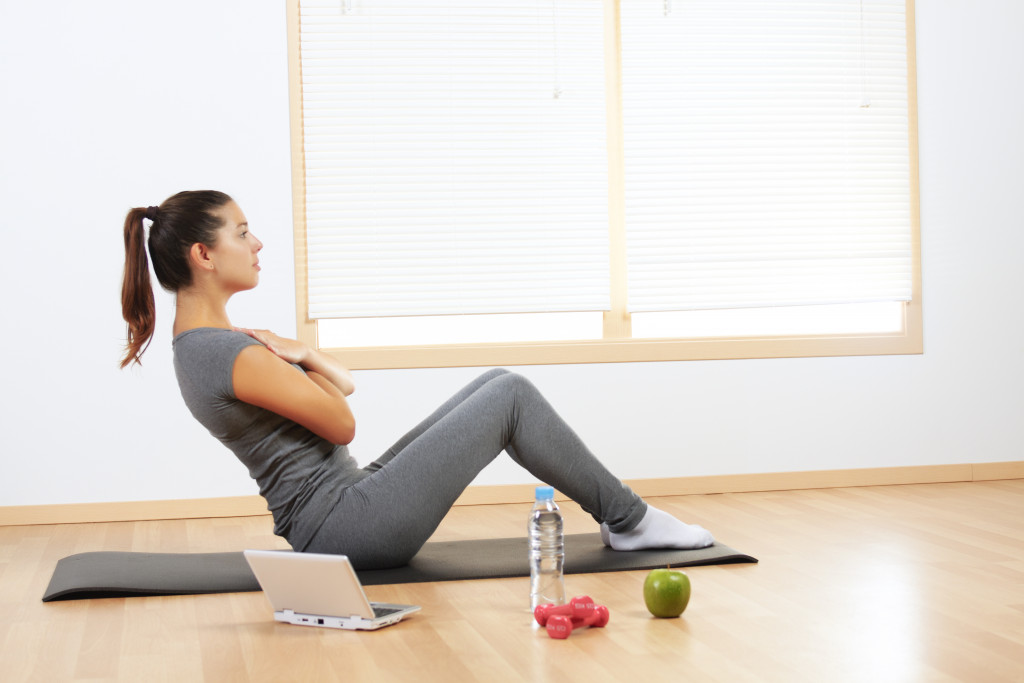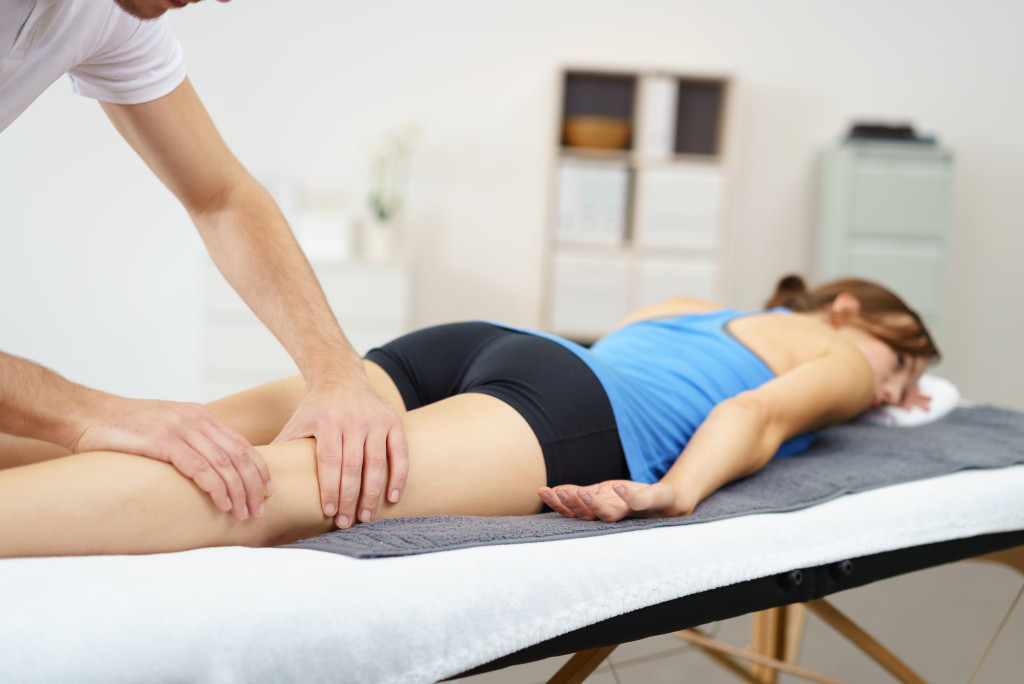Creating a balanced health routine and finding time to exercise is already tricky enough. But did you know that adjusting to such a fitness regimen can also cause muscle soreness? Your arms can hurt when you put them up, and you might find it hard to get out of bed. When you exercise, it’s normal for your muscles to experience physical stress or discomfort.
But take note that it’s generally harmless if the soreness is mild to moderate. It shouldn’t last for more than 72 hours. If it does, then your workout was too much. Severe soreness can be dangerous and damaging. It can prevent you from performing your daily activities, and painful muscle and joint damage may occur. Read on to know more about muscle soreness and how you can relieve it naturally.
1. Stay hydrated
Hydrating yourself is an integral part of helping your muscles recover from soreness after a workout. Just like food, water helps deliver the nutrients your muscles need. It also flushes out waste products in your body and eases any inflammation. But how will you know when or if you are dehydrated?
First off, dehydration does not happen right when you’re thirsty but before it. Check the colour of your urine can help you know if you’re dehydrated or not. If it’s pale yellow, you are hydrated. If there’s a dark yellow colour, it can be a sign of dehydration. However, take note that your urine may look dark, too, if you’re taking vitamin supplements.
2. Perform light stretching
When you’re sore after a workout, doing some light stretching can help release tightness. In some cases, it can help boost your range of motion if you do it right. However, remember that light stretching cannot repair or heal the tears in the muscles.
Furthermore, since the muscles are already warm after an exercise routine, use static stretching that focuses on the range of motion. Just ensure not to overstretch your muscles. Doing so can make the muscles come back tighter since there’s resistance in your body. If the soreness or pain is extreme, we don’t recommend doing light stretching. Seek immediate medical care or try resting first.

3. Apply heat or ice
Most people apply pressure on the affected areas. But if that doesn’t work, applying heat or ice is worth a try. Keep in mind that this is another generic recovery method, which is often used by individuals who don’t know what causes their soreness.
Heat is ideal between the two as it’s known to alleviate pain. Others use it to preserve the strength of muscles. You can apply moist heat to the affected area after working out. On the other hand, cold water immersion or icing is only beneficial for reducing the swelling or numbing the symptoms temporarily. They cannot help with complete recovery.
Nonetheless, you can use these to reduce discomfort after exercise. Or, you can try alternating heat and ice to ease the sore spot. You can take a warm bath, then use an ice pack on the affected area.
4. Get a soothing massage
Another effective way of easing muscle soreness is through massage. Foam rollers are popular products for releasing tensions in connective tissues and muscles. It can also help free the fluids that accumulate in your muscles after the workout. Other products you can invest in include a massage chair, shoulder or neck massager, and leg or hand massager.
To guarantee effectiveness, only purchase massager machines from reputable lifestyle brands like OSIM. In general, massage can help blood circulation and deliver more oxygen and nutrients into the affected areas. You can also do massages between exercises to help with mobility and ease any early muscle soreness.
5. Eat for recovery
Getting enough healthy fats, carbohydrates, and proteins is crucial for warding off or repairing sore muscles. At the same time, you should also consume them at the right time if you want to prevent unbearable pain. As for reducing inflammation or relieving soreness, you can try drinking tart cherry juice. Just watch out for high sugar content.
Green tea is another excellent choice, which can help with hydration and reducing muscle damage. Other foods that are helpful for soreness are sweet potatoes, seeds and nuts, cottage cheese, and turmeric.
Bear in mind that these tips may only work for mild to moderate muscle soreness. However, if you are experiencing unbearable pain, we highly suggest that you seek proper medical attention immediately. Until then, avoid continuing your exercise routine or any physical activity that can make your condition worse.




